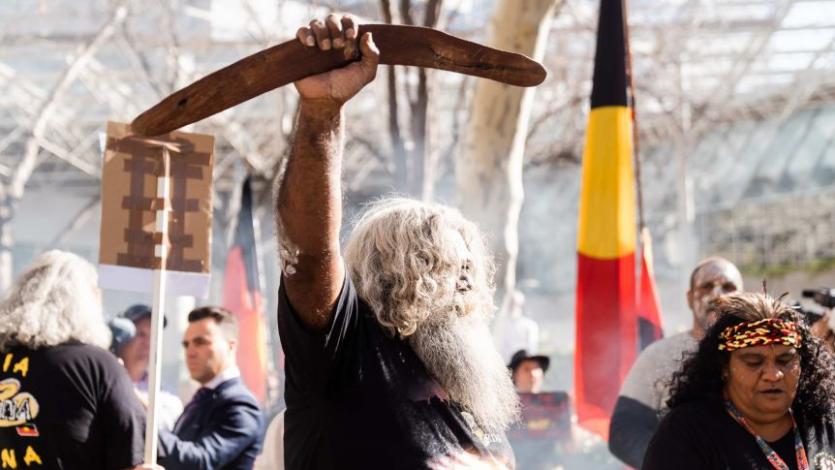The destruction of the Juukan Gorge heritage site drew a public outcry against iron ore miner Rio Tinto. Photo:ABCNews
Rio Tinto mining company destroyed many aboriginal sites in Australia – and intend to destroy more
By Patryk Krych | The World Daily | SEPTEMBER 21st 2020
The Riot Tinto mining company is said to be planning the destruction of 124 aboriginal sites, for the purpose of mineral collection. This comes closely following previous promises to never cause harm to aboriginal sites again.
On September 11, 2020, chief executive of the Rio Tinto mining company Jean-Sébastien Jacques had been forced to resign after reports came out of the company using explosives to harvest millions of dollars’ worth of high-grade iron ore in May – which happened to lay underneath a series of caves holding thousands of years’ worth of Australian indigenous people’s history: located in Juukan Gorge. The cultural sites were demolished, along with the history they held within.
After this pressing event, Rio Tinto’s chairman, Simon Thomson, stated that “What happened at Juukan was wrong,” and that nothing of this sort would ever happen again. Those promised words from Thomson seem empty now, after an inquiry revealed that the company fully intends to destroy yet another 124 Aboriginal heritage sites at the very least, in their plight for harvesting the iron ore within the country.
Rio Tinto have already gained approval to go ahead with the destruction of 26 of the 124 cultural heritage sites in range of the company’s Western Range deposit, under section 18 of the Aboriginal Heritage Act of 1972. The Yinhawangka Aboriginal Corporation (YAC) are going through the works of trying to prevent this destruction from occurring.
Permission had been given to the Rio Tinto company to mine beneath the aboriginal sites by the then WA Aboriginal affairs minister, Peter Collier, in 2013. The destruction of the ancient rock shelters took place on May 24, though the premier at the time, Colin Barnett, called for a gathering and discussion from the royal commission on the matter.
“There is a high likelihood that that recommendation to the minister was invalid,” said Robin Chapple, a WA Greens MP, to a joint standing committee on Northern Australia over a telephone hearing on Monday, supervised by the chair of the committee, one committee member, and three ex-officio members. “And the reason for that is the act specifies that only two members of that committee can be ex-officio when it comes to a quorum of five.”
What this means, is that the traditional owners of the Juukan Gorge (the Puutu Kunti Kurrama and Pinikura (PKKP) people) would be liable to demand compensation from the state, on account of the permitted destruction. It’s been confirmed that the PKKP are in the midst of talks with the Rio Tinto company is it is, discussing compensation and the halting of further destruction towards any other of their culturally significant sites.
The chief executive officer of the Australian Football League (AFL), Gillon McLachlan, has also come under some scrutiny following a pledge to “fight all forms of racism and discrimination on and off the field.” This pledge too, has been labelled a lie by some critics, due to the AFL’s continued partnership with the Rio Tinto company, despite their financially driven actions against the country’s aboriginals.
Other organisations, however, have put Rio Tinto under harsher scrutiny. Endorsement of the company was withdrawn by Reconciliation Australia, who have removed it from a Reconciliation Action Plan program. More recently, HESTA, an Australian industry superannuation fund for workers in health and community service sectors, stated that an “independent inquiry needs to investigate all of Rio’s agreements.”






